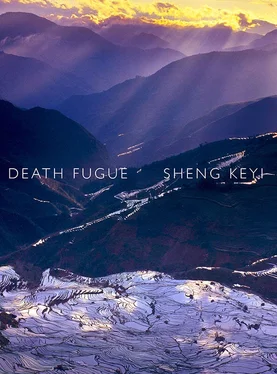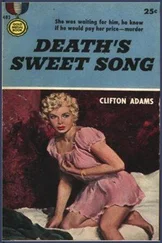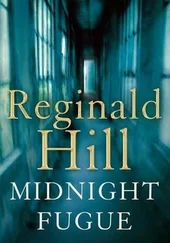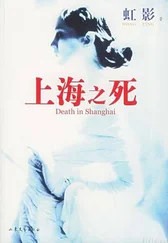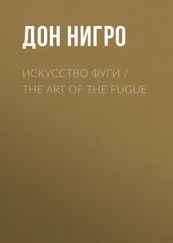The candle had burnt down and went off with a whiff. As he was feeling drowsy with sleep, he heard the sound of a wooden latch sliding. The sound was hesitant. It paused a few times. The latch seemed to be thousands of miles long, never reaching the end, like a carriage bearing a great load up a steep slope, where the slightest interference would spook the horses and stop them in their tracks. Mengliu’s ears were alert. He hardly breathed. Darkness enveloped him. He could see Juli coming out from her bedroom, and hear the swishing of her gown. The wind blew from the forest, rattled the coconuts on the palm trees, filling the air with their fragrance. In the garden insects struck up a chorus. She came in, sinking onto the edge of his bed. She was holding a sharp knife. Her hair was dishevelled, her eyes bloodshot. He could feel her breath on his face. The tip of the knife reached his chest, but it was warm, more like a fingertip than a blade. Ah, Juli’s fingertip pressing, two fingertips, three…all of them on him, like a flock of tame creatures. They stroked the grassland of his face, nibbling at the stubble there. Slowly, the fingers straightened and her palms pressed on his face, like a little beast sprawling on top of him, its warm belly pressed against him. All of a sudden, the liquids beneath the earth became torrential, his body tightened like a taut string. When he reached for her there was a crashing sound, and he fell from the bed, waking himself from his dream. He got up, and walked out of the house into the darkness. Laughter echoed in the blankness of his mind.
As dawn broke, he returned in a cloak of mist, extremely weary, and went back to sleep. When he awoke, his emotions were still in a tangle, making his chest feel bloated and hot. Everywhere he looked he saw images of Juli. With the precise observations of a surgeon he concluded that he was in love with her. This woman turned the glue-like substance secreted in his heart into something stickier than any chemical. What he was feeling went beyond science.
It was said that Juli’s husband was a diplomat, an ambassador, young and personable. Only a few people had seen him. It was also rumoured that he had disappeared during his travels at sea. In Mengliu’s imagination he was himself a criminal, thinking of ways to get away with a crime. After he had slept with Juli, how could he act normal, clean up the scene of the crime, clear all signs, erase all suspicious clues…the feeling of success a criminal had did not come from the crime itself, but from the ability to escape being caught. His mind wandered, and he began to taste the excitement of committing adultery. He wanted to have his way with Su Juli. At the same time, he was thinking of how he would escape from Swan Valley.
21
In Round Square there were no songs and no slogans, no bustle, just a mass of bobbing heads. Black flags waved against the bleak sky. People were losing consciousness from hunger, and many had to be carted away in ambulances. The shrill sound of their sirens, like the buzz of a chainsaw cutting through oppression, solidified time and space, like a hand squeezing the light in a tight grasp. The weak light escaping between its fingers brushed past the faces which had suddenly lost their joy. The bodies reeling left and right were wilting like flowers. The number of supporters had increased. People had come from all over Beiping just to sit in Round Square without eating or drinking. The original plan for a rolling schedule of fasting had been jeopardised. There was chaos, disorder, a loss of control. Someone took a loudspeaker and requested that the crowds follow all the organisational arrangements, so as to avoid injury. A headquarters was established and a commander-in-chief installed. Qizi was dressed for the part, wearing a white headband and white mandarin jacket. She hopped up onto the scaffolding of the small broadcasting station and related the developments of the past few days. When she got emotional, she became teary-eyed and her voice filled with a generous grief.
At night, the street lamps cast their glow over Round Square, creating a dreamy warmth there. The temperatures were much lower after dark than in the daytime, and many of the protestors were turning blue with the cold, their lips grey. They were like baggage unloaded from a long-distance bus, thrown untidily together, covered in dust and mud. Early in the morning the square resembled a battlefield that had fallen silent once the fighting was over, with bodies all over the field and the dilapidated flags shrouded in a smoky mist. The clouds were stained, first grey, then pale orange, golden yellow, then a mix of yellow and red as the sun rose to expose its own grey face, blanketed by the fog.
Sixi’s voice sounded over the radio, reading poems by Pablo Neruda. Another voice, belonging to Fusheng, a professional broadcaster, joined in. They had hit it off the first day they met.
Mengliu was kept extremely busy doing odd jobs in Round Square. Hearing Qizi’s voice, he looked up and noticed she had the word ‘sorrow’ printed in huge letters across her back. He took some comfort from this, but the word also gave him a sense of foreboding. He was not sure when it had happened, but he was no longer angry with Qizi. A familiar joy glowed in him again. His affection and hunger were still alive, telling him of the suffering and pain she had undergone since they had parted. She had lost weight, but at the same time she had been through the forge, and had absorbed the essence and strength of darkness, breaking out of the door finally like a brilliantly shining gold coin.
He needed to speak to her.
He hung his megaphone on a flagpole and went back to the broadcasting station. He bent low and stepped into the tent, planning in his head to wait until the busy period was over to apologise to Qizi. He would accept any punishment from her, and the two would make up and engage in a dizzying embrace. But when he finally found Qizi, she was sitting with her back against a tent post, with a bag of fluid hanging from it. She was on a drip. They were holding a meeting. She was listening, brow furrowed, face pale, chin sharp as an awl. She had grown thin. Mengliu almost didn’t recognise her. She didn’t even look at him, or if she did, she showed no response. He wondered whether she recognised him. What were they involved in — a great cause? a brawl? It was because of their breakup that she had joined the demonstrations in a confused state. Could she be going on a hunger strike now because she had fallen out with him? Mengliu was absorbed in his conjectures when Qizi suddenly pulled the needle out of her arm and stood up.
She uttered something that shocked him — it was about self-immolation. She would use her death in exchange for the lives of the hundreds now on hunger strike.
Mengliu forgot to breathe. He was saying to himself, Qizi, you’re crazy. As if answering him, she said hoarsely, ‘I’m not mad. I am very composed. This is the only way we will awaken the conscience of those indifferent to our plight…’ Her voice quivered and she dropped to the ground.
Each man’s death diminishes me
for I am involved in mankind
therefore do not send to know
for whom the bell tolls
It tolls for me, and for thee
In times of fear and trembling
I want to make my life real
I must make this confession public
exposing my own hypocrisy
and that of my generation
As Sixi recited the poem on the radio, Hei Chun entered and interrupted her. He brought several important announcements and wanted to broadcast them immediately
‘There are no substantive negotiations. They are filibustering, obviously stalling for time.’ Hei Chun sat on the table, a cigarette in his hand.
Читать дальше
